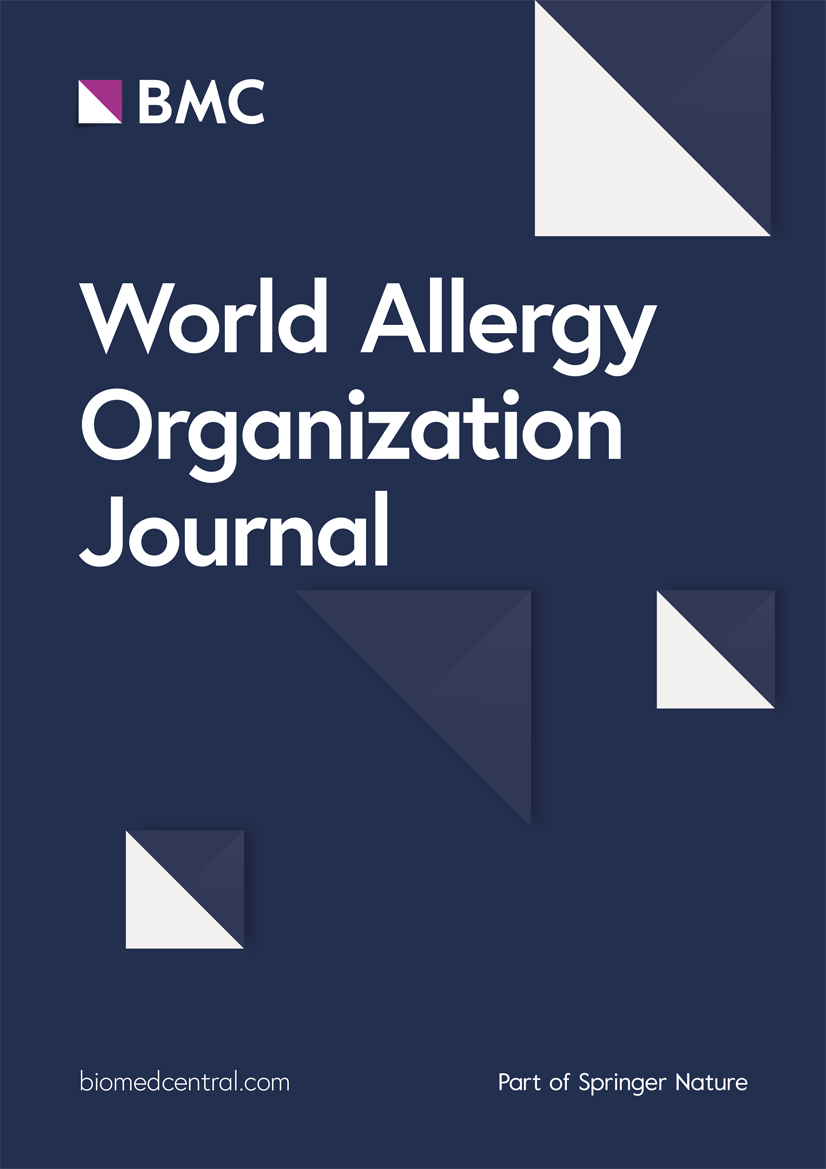The effects of prenatal vitamin D supplementation on respiratory and allergy-related outcomes in children: A systematic review and meta-analysis of randomized controlled trials
IF 4.3
2区 医学
Q2 ALLERGY
引用次数: 0
Abstract
Background
Vitamin D is critical for immune regulation and respiratory health, yet its supplementation during pregnancy shows inconsistent results in preventing respiratory and allergy-related outcomes in children. This systematic review and meta-analysis aim to evaluate the impact of maternal vitamin D supplementation on respiratory tract infections (RTI), asthma, wheezing, eczema, and allergy in offspring.
Methods
A comprehensive search was performed in PubMed, Embase, Web of Science, Cochrane Library up to December 2024. We included randomized controlled trials (RCTs) examining the effects of prenatal vitamin D supplementation on respiratory and allergy-related outcomes in children. The GRADE approach was applied to assess the quality of evidence, and the Cochrane risk-of-bias tool was used to evaluate study quality.
Results
Seven RCTs were included (3958 mother-infant pairs). Prenatal vitamin D supplementation did not significantly reduce RTI in children compared to controls (RR = 1.018, 95% CI: 0.965 to 1.074, p = 0.514). Similarly, no significant effects were observed for asthma (RR = 0.395, 95% CI: 0.670 to 1.308, p = 0.699), wheezing (RR = 0.824, 95% CI: 0.826 to 1.089, p = 0.174), eczema (RR = 0.954, 95% CI: 0.826 to 1.102, p = 0.522), allergic conditions (RR = 0.938, 95% CI: 0.841 to 1.047, p = 0.255), or IgE positivity (RR = 0.942, 95% CI: 0.736 to 1.207, p = 0.639). Subgroup analyses showed no significant effect modification based on control group supplementation or follow-up duration.
Conclusion
There is moderate-quality evidence suggesting that prenatal vitamin D supplementation has minimal or no significant effect on reducing respiratory tract infections and allergy-related outcomes in children.
产前补充维生素D对儿童呼吸和过敏相关结局的影响:随机对照试验的系统回顾和荟萃分析
维生素D对免疫调节和呼吸系统健康至关重要,但在怀孕期间补充维生素D在预防儿童呼吸系统和过敏相关结局方面的效果并不一致。本系统综述和荟萃分析旨在评估母体补充维生素D对后代呼吸道感染(RTI)、哮喘、喘息、湿疹和过敏的影响。方法综合检索截至2024年12月的PubMed、Embase、Web of Science、Cochrane Library。我们纳入了随机对照试验(RCTs),研究产前补充维生素D对儿童呼吸和过敏相关结局的影响。GRADE方法用于评估证据质量,Cochrane风险偏倚工具用于评估研究质量。结果共纳入7项随机对照试验(3958对母婴)。与对照组相比,产前补充维生素D没有显著降低儿童RTI (RR = 1.018, 95% CI: 0.965 ~ 1.074, p = 0.514)。同样,对哮喘(RR = 0.395, 95% CI: 0.670 ~ 1.308, p = 0.699)、喘息(RR = 0.824, 95% CI: 0.826 ~ 1.089, p = 0.174)、湿疹(RR = 0.954, 95% CI: 0.826 ~ 1.102, p = 0.522)、过敏症状(RR = 0.938, 95% CI: 0.841 ~ 1.047, p = 0.255)或IgE阳性(RR = 0.942, 95% CI: 0.736 ~ 1.207, p = 0.639)均无显著影响。亚组分析显示,根据对照组的补充或随访时间,没有显著的效果改变。结论有中等质量的证据表明,产前补充维生素D对减少儿童呼吸道感染和过敏相关结局的影响很小或没有显著影响。
本文章由计算机程序翻译,如有差异,请以英文原文为准。
求助全文
约1分钟内获得全文
求助全文
来源期刊

World Allergy Organization Journal
Immunology and Microbiology-Immunology
CiteScore
9.10
自引率
5.90%
发文量
91
审稿时长
9 weeks
期刊介绍:
The official pubication of the World Allergy Organization, the World Allergy Organization Journal (WAOjournal) publishes original mechanistic, translational, and clinical research on the topics of allergy, asthma, anaphylaxis, and clincial immunology, as well as reviews, guidelines, and position papers that contribute to the improvement of patient care. WAOjournal publishes research on the growth of allergy prevalence within the scope of single countries, country comparisons, and practical global issues and regulations, or threats to the allergy specialty. The Journal invites the submissions of all authors interested in publishing on current global problems in allergy, asthma, anaphylaxis, and immunology. Of particular interest are the immunological consequences of climate change and the subsequent systematic transformations in food habits and their consequences for the allergy/immunology discipline.
 求助内容:
求助内容: 应助结果提醒方式:
应助结果提醒方式:


